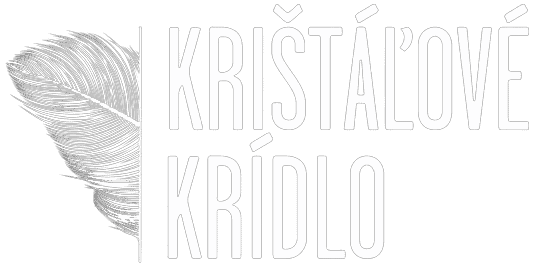A seamless challenger bank experience, with the long-standing loyalty and brand awareness of an incumbent? It sounds too good to be true. It normally is.
If dragons could create successful unicorns, the rewards would be immense. Imagine the scalability, efficiency and agility of a challenger if they held the kind of account deposits you’d expect to see in an incumbent. A case in point is Mox, the digital bank backed by Standard Chartered in Hong Kong. The average account has a whooping US$10,000 stashed away. The likes of Revolut or Monzo could only dream of achieving such numbers. Their customers deposit a meager £300 – £500 a month, which tends to quickly vanish again.
But Mox is a rare example, a diamond in the rough. Vast swathes of incumbent banks have tried and failed to crack the market. Walking through the graveyard of abandoned apps, in the field of digital banking and investment management, we can find the likes of UBS’ SmartWealth, Investec’s Click & Invest and RBS’ Bo among others. So, what’s the secret formula? We spoke to the pioneer behind Mox, CEO Deniz Güven himself to crack the billion-dollar code.
Independent technology
Different from other banking apps, Mox remained fiercely independent. As Güven explains:
“We didn’t use any existing technology from our mothership.”
Mox was built entirely from scratch, so each technological decision was given a lot of thought. It needed to earn its place and add value.
“We use technology to differentiate”, Güven continues, “Because technology enables us to do new kinds of things, to change the mindsets, and change the KPIs”.
Traditionally, incumbent banks’ onboarding processes have been a real turn-off for customers. In 2020, 63% of customers in Europe abandoned their digital application because it took too long. Because of slow onboarding, 78% of banks say that they’ve lost customers to challengers. But by using fresh technology, Mox neatly side-stepped this problem. Onboarding time takes just 3 minutes and 47 seconds, in-line with Revolut, Monzo and other challengers.
Speedy and seamless onboarding is a huge deal when it comes to revenue – the lifeblood of any bank. Incumbent banks are missing out on a jaw-dropping $22.75 billion each year because their onboarding technology cannot compete with challengers.
Micro-innovations
Mox started its journey at the destination – with the customers. Güven reveals how customer-led research directed the technology, every step of the way:
“We used ethnographic research to fully understand the customer. We identified 80 pain points and set about trying to fix each of these issues one by one with technology”. Güven refers to these as “micro-innovations”.
One successful innovation was to create a beautifully blank card, without a long number, CVC or expiry date.
“We realized that there’s an extra sensitivity in Hong Kong with cloud security. This was the first numberless card in Asia by a bank”.
Micro-innovations that enhance the customer are game-changing in the industry. Even the smallest differentiation can go a long way. You only need to look at the brightly coloured metal, wooden and even ceramic cards to see how challengers are clamouring for customers’ attention.
For Mox, who reached a staggering 60,000 customers after just 80 days – almost 1% of the entire Hong Kong population – a service-first approach was pivotal.
Find the best people
Finding the best people is key to unlocking success for Güven, who conducted more than 1,200 interviews to build his dream team. Güven looks for a specific trait in his partners and workforce. It’s what he refers to as the “Midas touch”. Like the ancient Greek God, Güven looks for people who can turn things to gold with a touch – or add significant value quickly.
With each new set of skills brought on board, Güven improves the service for customers.
“You need to find a partner or partners that you can collaborate with in a different way”, he explains.
Vacuumlabs was one such partner, and our Midas touch was that we could use technology to rocket Mox ahead to launching.
“Thanks to you guys [Vacuumlabs], we accelerated to delivery!”, elaborates Güven. “It was a really, really good experience for all of us”.
In the world of digital banking, the right partnership can add significant brand value – both to the customer and shareholder., Marcus by Goldman Sachs also uses partnerships well. For example, in 2019, the digital banking app teamed up with Apple to deliver a credit card which integrates into customer’s mobile devices. This offers a breakdown of spending patterns to help customers save money. It helps make them memorable and keeps them in-touch with their customer base.
Let the fintech lead the incumbent
Even before COVID-19, it was painfully obvious that the dragon banks needed to digitise … or become a mysterious relic of the past. Each generation expects better digital experiences, and we’ve reached a point where 62% of UK Gen-Zs last year were unhappy with their bank. To survive, banks must stop talking about their digital transformation strategy and start delivering on it.
Achieving this will require significant digital upskilling, as an entire workforce needs to re-learn the way they do finance. A recent Hong Kong Banking report reveals that this will be one of the most intense challenges that the sector will face over the next decade.
Güven, however, is approaching the problem in a fresh way. He’s built Mox, with the intention that one day, Standard Chartered can follow in it’s blaze. As he elaborates further, Mox is not just an app, it’s the future operating model of the bank:
“This is the most critical piece, and it was vital for me. Instead of just focusing on one mobile app, and pushing the technology and pricing, we decided to focus on a new operating model, which can bring us a lot of different opportunities and also a lot of chances to differentiate ourselves in Hong Kong … Let’s build the future operating model of Standard Chartered!”.
It’s a bold and strong statement, but Güven has researched and honed his product in extraordinary detail. As they say, fortune favours the brave. And, here at Vacuumlabs, we feel very fortunate to have been a part of the journey of building Mox.
Feeling inspired? Listen to the entire podcast with CEO Deniz Güven for more exclusive insights and unreported nuggets – Available on Apple Podcasts, Breaker, Google Podcasts, Overcast, Pocket Casts, Spotify or here:
Full transcript of this episode is available here.
Here’s a rundown of this episode:
- 01:18 How was Mox created
- 06:34 Market research
- 08:37 Hiring and need of partnerships
- 13:31 How does Hong Kong market differ from other markets?
- 17:00 New operating model and game-changers
- 25:34 Biggest challenges
- 27:20 Recent numbers
Deniz Güven is an internationally recognized leader in driving digital transformations and bringing new digital banking experiences to audiences globally. Mox is a new virtual bank backed by Standard Chartered Bank in partnership with PCCW, HKT, and Trip.com in Hong Kong. As CEO of Mox Bank, Deniz is leading the team that’s bringing a new way of banking to Hong Kong, by empowering people to grow and unlock possibilities through a truly digital and personalized banking experience. Mox operates in a whole new way by listening to customers and focusing on heart share.
Deniz joined Standard Chartered in 2017 as the Global Head, Design and Client Experience, where he oversaw client journey and optimizations, digital wealth, and collaborations with tech firms and start-ups. Prior to joining Standard Chartered, Deniz served as the Senior Vice President at BBVA Group’s Garanti Bank in Turkey. During his role at Garanti, Deniz was responsible for end-to-end digital assets, as well as iGaranti, the mobile-only bank in Turkey. Deniz played an important role which enabled Garanti to reach 5 million active digital customers and to grow their market share in Turkey. Previously, Deniz also worked for HSBC, QNB Finansbank and DemirBank. Deniz holds a Bachelor’s Degree in New Media and Communications from Marmara University and an MBA from Istanbul Bilgi University. In addition to being a technology enthusiast, he enjoys yoga, writing and supporting the Besiktas Football Club.
‘Banking on Air’ is the official Vacuumlabs podcast covering the challenges, opportunities, perspectives and opinions that matter to you and to our community. In this podcast, we are looking under the hood of the changing face of tech: the acceleration in all things digital, the impact of regulation (and disruption), the need for genuine collaboration – and the specter of competitors old and new as it plays out in fintech and financial services around the world.
This podcast is brought to you by Vacuumlabs – and we’re sharing our experience and expertise in creating solutions for the digital journey for professionals, community banks, and fintechs. We believe that the future is in communities when it comes to digital transformation in financial services, and we invite you to join us and our guests over the coming weeks and months.








